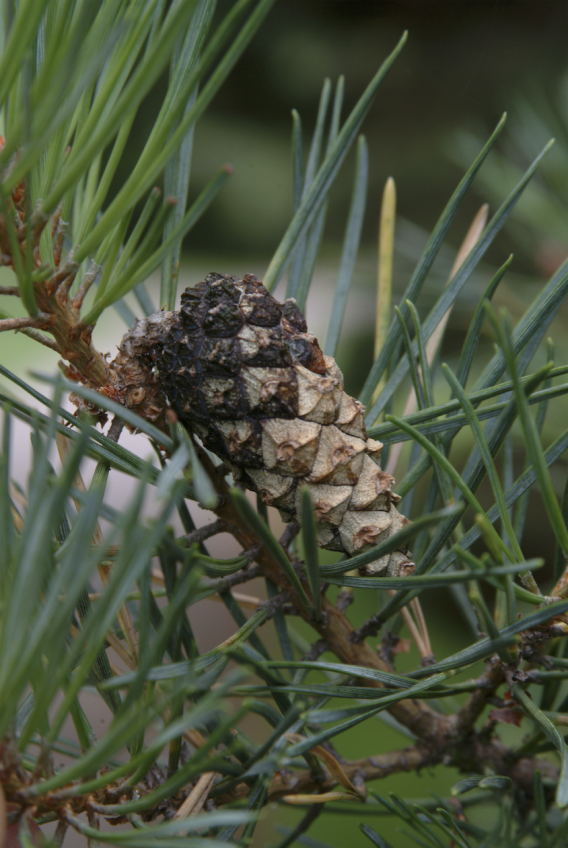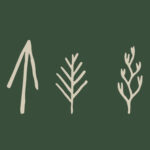Initiative with Kew Gardens to protect Scotland’s trees takes root
With a host of new pests and diseases attacking the UK’s native treescape, a new consortium of Scottish organisations, working with Kew’s Millennium Seed Bank, are tackling the threat, as part of the UK National Tree Seed Project.
The UK does not currently have comprehensive and genetically representative seed collections of native tree populations for research and use in practical conservation. The UK National Tree Seed Project, launched in 2013, seeks to fill the gap and will make seed collections available for researchers working on challenges facing UK woodlands and forestry such as pests and diseases and climate change. The Project has been rolled out across England with great success, and will now be extended throughout Scotland and Wales.
"Thanks to support from players of People’s Postcode Lottery, seeds from Scotland’s best loved and most vulnerable trees and shrubs will be collected and protected in long-term storage… "
Thanks to support from players of People’s Postcode Lottery, seeds from Scotland’s best loved and most vulnerable trees and shrubs will be collected and protected in long-term storage in the vaults of the Millennium Seed Bank facility at Wakehurst in Sussex. The Millennium Seed Bank already safeguards practically the entire UK flora in its vaults and works to restore native plants and trees to their natural habitats.
Fifteen organisations across Scotland are partnering with Kew for the project, including Forestry Commission Scotland, Scottish Wildlife Trust, Trees for Life, and the Woodland Trust, among several other conservation organisations.
Many of these partners already undertake tree seed collection and use at a local level but MSB staff have also provided training in order to meet the rigorous standards required for the Millennium Seed Bank collections. Together, this consortium of like-minded organisations will ensure that the collections already protected in Kew’s Millennium Seed Bank will grow and become more comprehensive, eventually representing the full genetic diversity of Scotland’s tree populations. This will create a vital resource for those working to develop more resilient woodlands across the UK.
The project will also raise the capacity for collection and supply of seed of native species for planting across Scotland. Forestry Commission Scotland is a key partner, providing advice on target species distribution and help with collecting seeds.
Scottish Government Environment Minister, Dr Aileen McLeod, said:
“This is a long-term project that will deliver longer-term results. It has great potential to make a significant contribution to the health of our forests and woodlands. It is to be commended and applauded and I am pleased that Forestry Commission Scotland has committed to the effort to safeguard our future forests.”
Clare Trivedi, UK National Tree Seed Project Coordinator, said:
“We are delighted to welcome these new Scottish organisations to the UK National Tree Seed Project and look forward to working closely with them in the coming years. In recent times we have seen an increasing threat to our trees from many newly arrived, often very aggressive pests and diseases, and challenges associated with climate change. Establishing the UK’s first comprehensive national tree seed bank is absolutely crucial. The UK’s tree cover is amongst the lowest in Europe. Avoiding further degradation of our woodlands, and the wider environmental, economic and social impacts of this, ultimately hinges on conserving the valuable genetic diversity of our trees and shrubs.”
 Species targeted in the Project include:
Species targeted in the Project include:
- Common juniper (Juniperus communis) This evergreen species is one of only three native conifers in Britain and is at risk from the fungus-like pathogen Phytophthora austrocedrae.
- Scots pine (Pinus sylvestris) The national tree for Scotland is increasingly at risk from pests and diseases including Dothistroma needle blight, pinewood nematode, pine processionary moth and the pine tree lappet moth.
- Common ash (Fraxinus excelsior) At threat from ash dieback (Chalara fraxinea), which first came to the public’s attention in spring 2012. This fungus kills the leaves and bark tissue, causes shoot death, cankers, crown dieback and ultimately the demise of the entire tree. Ash is also at potential risk from the emerald ash borer beetle.
- Common alder (Alnus glutinosa) This water-loving species, typically found in wet woodlands or alongside streams and rivers, is at risk from the pathogen Phytophthora alai.
- Silver birch (Betula pendula) and downy birch (Betula pubescens) The silver birch is a genuine native, growing in the UK since the end of the Ice Age. Its papery-white bark distinguishes it from the downy birch, which has reddish bark that turns grey with age.
Kew’s Millennium Seed Bank Partnership is the world’s most ambitious plant conservation initiative and Kew’s Millennium Seed Bank is the largest facility of its kind. Collecting and conserving wild plant seeds provides an insurance policy against extinction, supports practical conservation and provides options for the future use of plants for the benefit of people and the planet. Most of the collections are available for research and over a third have a known use to people.

